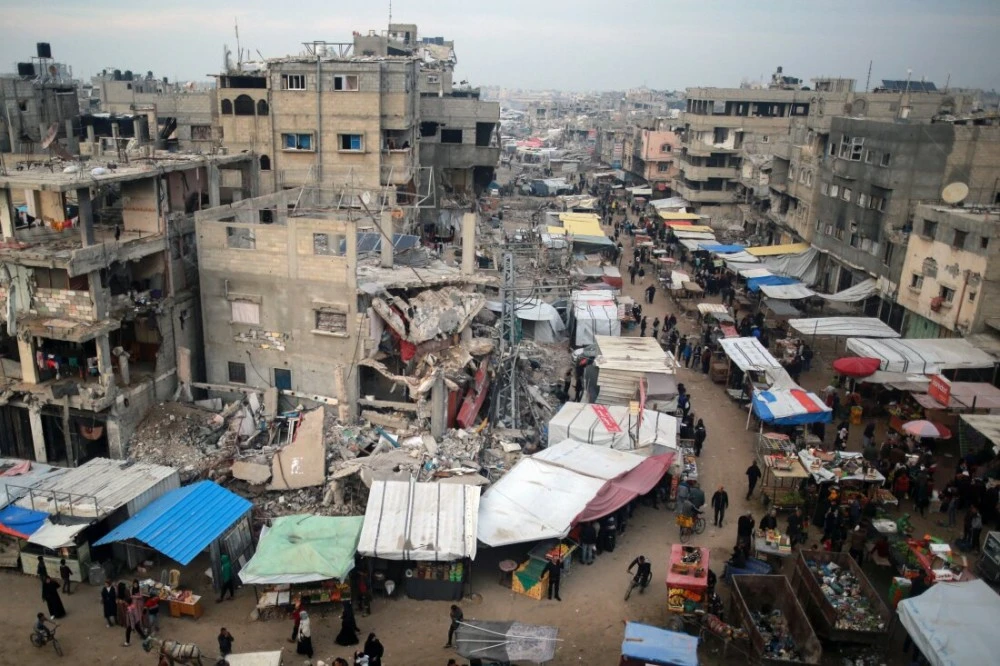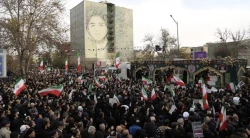Will Gaza change the luck of the region?
- 2025-01-18 08:12:00

The Gaza war has nearly ended, and it is time to cease the exchanges about it. Much has been said, whether truth or lies... So, what is your excuse for a word already spoken?
Perhaps Gaza, with all the horrors its people endured, may change the luck of Palestinians and the region. It is imperative to support the afflicted land so we can overcome this stage. Such support acts as a catalyst for a better future, enabling a new phase to begin after the repercussions and developments caused by Gaza and those yet to come.
The Gaza war achieved the unexpected: the collapse of a regional system and the emergence of a different geopolitical reality. Without it, Syria, Lebanon, and the region might have continued under authorities that incite further chaos and wars for another decade.
The longest and harshest wars of conflict with Israel have ended, and it is time to provide humanitarian support and assistance to two million people.
One of Gaza’s lessons is that no issue can be left unaddressed, leaving others to handle it. There can be no peace for Israel without peace for its neighbors. Signing a partial peace agreement is insufficient, as it leads to partial wars. Even the best and fairest peace agreement cannot succeed without being marketed against the prevailing cultural and media hostility.
The Gaza war may have ended, though some sporadic gunfire and clashes are expected to cease soon.
Gaza can first serve as a gateway to peace among Palestinians themselves, leading to an agreement on a central authority and ending the rift between Gaza and Ramallah that has persisted since 2007. It could be the entry point to initiating the two-state solution, a project Saudi Arabia pledged to work on, while Israel vowed to prevent. Every peace project begins with rejection and ends with reconciliation and handshakes.
What happened in October 2023 might be similar to the October 1973 War. That victory was limited – Egypt regained 20 kilometers beyond the Suez Canal in the war but, through the Camp David Accords, reclaimed all of Sinai, an area three times the size of Israel itself.
The Gaza war has altered the region, eliminating much of Hezbollah’s power and leadership, leading to the downfall of Bashar Assad’s regime, and ending Iran’s dream of expansion and dominance over the eastern Arab world. We now face a new and genuine opportunity for regional peace initiatives and an end to major threats and wars.
All eyes are on Iran, which remains in shock from the significant events it has endured and continues to face. What it built over forty years and acquired through force – land, influence, and proxies – evaporated last year. Today, Iran finds itself in a stage of reassessment, reflected in candid discussions in its media and likely deeper debates in closed chambers about its next steps. Iran has two paths: the first is to adapt to the new reality by pursuing peace and cooperating with Arab states to support Palestinians in their peace project. Such involvement would bolster the Palestinian cause and help its people achieve their aspirations without the need for bloodshed, destruction, and wasted billions.
The second path is to rebuild its military capabilities and ignite wars across the region to regain Syria, Lebanon, and Gaza. This scenario would be costly, and Tehran would struggle to find support from its people, who are already burdened by economic sanctions that President-elect Donald Trump and his incoming administration promise to intensify. The survival of the regime itself could be at risk.
Given the new situation, we must think realistically. This year has begun on a positive note: Lebanon has a new system, Syria has a different leadership, Hamas is set to become part of a unified Palestinian Authority, and there are signs that Iraq is seeking to rein in militias, if not eliminate them.
These changes have come at a high cost, as seen in Gaza, Lebanon, and Syria over two bloody decades. But will this lead to a harvest based on ending unrest, chaos, and occupation while achieving regional consensus?
Before the Gaza war, such a scenario seemed impossible. Today, it is not impossible at all.











